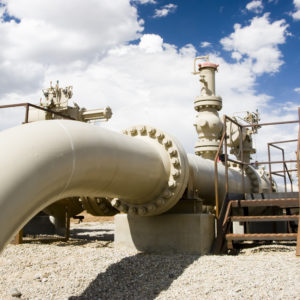Canadian natural gas distribution company Enbridge recently announced a yearlong delay of the strategically important Line 3 pipeline due to permitting challenges in the United States.
The pipeline was envisioned to deliver oil from Alberta to refiners in Minnesota and was originally scheduled for completion in 2019. The announced delay is just the latest in a series of setbacks affecting both producers in Alberta and consumers in the United States. Keep-It-In-the-Ground activists, seemingly undaunted by high energy prices and stranded resources, are cheering this development. Meanwhile, Alberta’s economy is reeling and the United States is denied the opportunity to reduce imports of crude oil from less reliable trade partners.
This seems to be a case of deja vu for Alberta, which now faces a severe transportation bottleneck because of numerous false starts on pipeline infrastructure, the most notable being the Obama administration’s contentious decision to block the Keystone XL pipeline.
Keystone’s permit denial marked the first time in history a U.S. president found a cross-border pipeline, which would help both nations create jobs and establish energy security, was not “in the national interest.” Similarly, the Trans Mountain pipeline has faced delays because of protests and efforts by activists to block the pipeline at all costs.
The direct result of this de facto pipeline blockade is that oil transportation has been forced onto railroads, which is more risky for spills and much more expensive than pipelines. Given these facts, anti-pipeline activists seemingly care little about the environment and even less about the economies of Alberta and the Midwest.
Alberta Premier Rachel Notley should be pushing aggressively to ensure that necessary pipeline infrastructure is built. Instead, she has imposed mandatory cuts on the province’s oil producers and is directly subsidizing crude-by-rail infrastructure.
While these production cuts may have managed to increase temporarily the price of Alberta’s oil, this draconian measure will undoubtedly hurt consumers and the economic prosperity of the region in the long run. The impact of the production cuts will also be felt in the United States, both at the pump and with respect to our national security interests.
When it comes to U.S. national security, recent sanctions placed on Venezuelan oil have caused U.S. refineries geared toward the heavier grades of crude found in both Venezuela and Alberta to look elsewhere to import the more than 500,000 barrel a day shortfall. Despite the fact that Canada should be the most obvious ally to meet that need, the government-imposed curtailment has rendered the nation unable to do so.
These production cuts have also eroded the economics of rail. Imperial Oil announced that it would drop its rail shipments to zero in February and Suncor made a similar announcement less than a week later. As a result, crude-by-rail shipments from Alberta were at the lowest level since May of last year. In response, the Alberta government is directing nearly $4 billion to subsidize additional crude-by-rail infrastructure.
For these reasons, replacing aging infrastructure and constructing new pipelines should be a high priority for both Canada and the United States. Canadian Minister of Natural Resources Amarjeet Sohi is asking U.S. Energy Secretary Rick Perry for help approving the pipelines. Perry should facilitate his request. In return, Alberta should signal a permanent end to government-imposed production cuts.
Since announcing the government-mandated production cuts, Premier Notley has frequently reassured the public that the market intervention is temporary, as its need will be largely alleviated when Line 3 is brought online. But given the announced pipeline delay, there seems to be no clear end to this misguided policy.
The bottom line is the United States must work harder to resist the antics of the Keep-It-In-the-Ground activists as they work to halt critical pipeline infrastructure. At the same time, Alberta must reject government-imposed production cuts as they only play into the demands of these activists and won’t solve Canada’s long-term need for crude oil export pipelines. Both countries must work together to enable the construction of critical energy infrastructure and to promote free-market energy policies for the sake of both countries’ future energy security.

